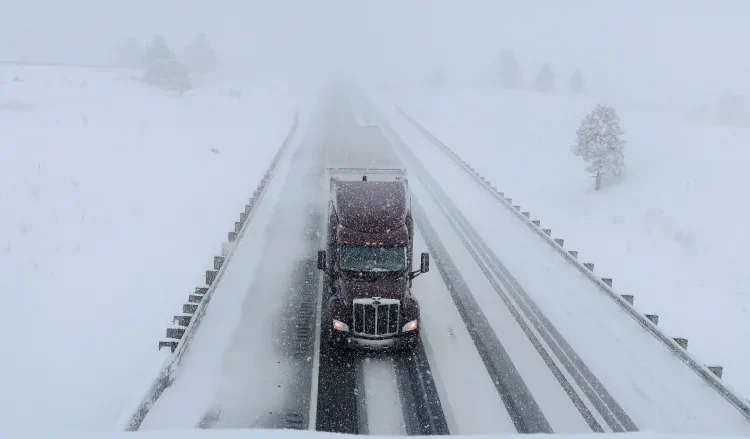Province bills truckers for 2 years’ worth of fees that had been previously waived during pandemic
As Ontario waived $1-billion in annual license fees for motorists, it is billing companies in the trucking industry for two years of fees, which were suspended during the global COVID-19 pandemic.
The Ontario government stopped charging licensing fees for trucking companies when it applied restrictions to limit the spread of COVID-19 in March 2020. The move was designed to reduce in-person contact at Service Ontario offices.
The province lifted that moratorium in January 2022, then billed companies for costs they would have incurred for licensing their trucks over the past two years.
Luke Judson, a trucking company manager based in Fort Frances, Ont., says provincial staff were unclear whether the fees were being waived or temporarily suspended when the waivers began.
“There was very little information throughout on that time on how that would be repaid, if it would be repaid, when the extension period would end,” Judson said. “There was a lot of back-and-forth and it was really muddy water for a while until we all received our letters in the mail a few months ago outlining what we owed and it looks as though the fees for those 22 months are payable now.”
For M.L. Judson Trucking Ltd., it means paying between $2,500 and $4,700 per year, per truck, depending on weight, Judson said.
Judson found he wasn’t the only one in the Rainy River District in northwestern Ontario who was in a tight situation as restrictions were lifted. He said some of his colleagues were facing license renewal costs upwards of $60,000.
Twenty-two owners and operators from 17 companies reaching as far east as Thunder Bay sent a letter to Kenora-Rainy River MPP Greg Rickford on March 7, requesting that licensing fees between 2020 and 2022 be waived entirely.
“Frankly at a time when the provincial government is refunding license sticker fees and ending license renewal fees for passenger vehicles, Ontario trucking businesses face a different reality,” their letter reads, in part. “The fees the MTO now expects our businesses to absorb will cripple trucking businesses across the province just as we are trying to get back on our feet.”
A response from Rickford’s office explained the regulations and when Judson clarified his industry was looking for a policy change, he says he received no response.
Financial hit comes amid rising costs, labour shortage
In February, the province announced it would scrap vehicle licence renewal fees and stickers for passenger vehicles, light duty trucks, motorcycles and mopeds but heavy commercial vehicles still need to pay renewal fees and stickers. It’s estimated the change will cost the province $1 billion a year in lost revenue.
While the province’s Heavy Commercial Vehicle Deferred Payment Plan allows companies to pay those fees over 24 months, truckers say their companies are experiencing record-high fuel costs, labour shortages, insurance premiums that are outpacing inflation, and supply chain challenges for vehicle parts.
According to the Ontario Trucking Association, there are 23,000 driving vacancies across Canada and that’s expected to increase to 55,000 by 2024. On the supply side, they’re seeing a 30 to 45 per cent decrease in the availability of trucks since last year across North America. The shortage is coming a time when load volumes are increasing as much as three-fold.
Mike Ford is the Fort Frances sales representative for Thunder Bay Truck Centre, a Peterbilt dealer and service outfit with outlets across northwestern Ontario.
He says vehicle manufacturing plants are at full production but it’s not enough. While the minerals needed for computerized parts are slowing production for many industries worldwide, Ford says he’s seeing a broader supply chain trend holding back trucks from reaching local lots.
“I had a customer last year who ordered a truck in February. It was scheduled to be built in April, it got pushed to July, then it sat in the factory for four months waiting for a front bumper, brake assemblies and some other small pieces. None of it was chip-related,” he said. “He ended up getting it – there was snow on the ground – so I think I delivered it at the beginning of December.”
CBC News has contacted Rickford’s office and the Ministry of Transportation Ontario for comment, but has not yet received a response.


